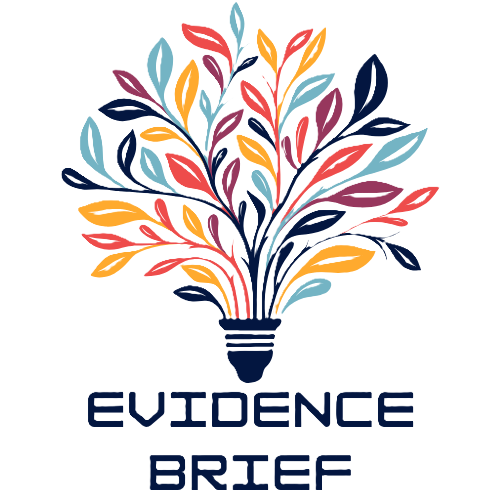Teaching adults isn’t quite like teaching kids – there’s a lot less finger painting and a lot more coffee breaks! But it takes more than just knowing your subject matter to become an effective adult educator. That’s where a certificate in adult education comes in handy.
A certificate in adult education equips aspiring instructors with essential skills to teach grown-ups effectively. From understanding adult learning theories to mastering instructional design these programs help educators create engaging learning experiences that resonate with mature students. Whether someone’s planning to teach in corporate training professional development or community education this certification provides the foundation they need to succeed.
Understanding Adult Education Certification Programs
Adult education certification programs offer specialized training in teaching methodologies tailored for adult learners. These programs encompass comprehensive coursework focusing on adult learning principles practical teaching strategies.
Types of Adult Education Certificates
Several specialized certificates cater to different aspects of adult education:
- Teaching English as a Second Language (TESL) certificates prepare instructors to teach English to adult non-native speakers
- Workplace Training Certificates focus on corporate training skills employee development programs
- Adult Basic Education (ABE) certificates target literacy numeracy instruction for adults
- Digital Learning Specialist certificates concentrate on online adult education platforms virtual classroom management
- Career Technical Education (CTE) certificates emphasize vocational skills training workforce development
| Certificate Type | Duration | Focus Area |
|---|---|---|
| TESL | 6-12 months | Language instruction |
| Workplace Training | 3-6 months | Corporate education |
| ABE | 9-12 months | Basic skills |
| Digital Learning | 4-8 months | Online teaching |
| CTE | 12-18 months | Vocational training |
Program Requirements and Prerequisites
Standard admission requirements include:
- Bachelor’s degree from an accredited institution
- Minimum GPA of 2.5 in undergraduate studies
- Professional teaching experience (1-2 years)
- Letters of recommendation from education professionals
- Personal statement outlining career goals
- English language proficiency for non-native speakers
- 120 hours of coursework
- 40 hours of supervised teaching practice
- Teaching portfolio development
- Assessment design projects
- Classroom management demonstrations
Core Components of Adult Education Programs

Adult education certificates focus on essential competencies that enable instructors to deliver effective learning experiences. These programs integrate theoretical knowledge with practical applications across three fundamental areas.
Adult Learning Theory and Principles
Adult learning theory forms the foundation of effective adult education programs. Instructors study Malcolm Knowles’ andragogy principles, which emphasize self-directed learning motivation experiential approaches. The curriculum covers key learning styles including visual auditory kinesthetic methods for diverse adult learners. Programs examine cognitive processing patterns in mature students, incorporating research-based strategies for memory retention information processing. Course modules explore transformative learning concepts that facilitate meaningful personal professional development in adult settings.
Curriculum Development Skills
Curriculum development training equips instructors with systematic approaches to create engaging adult learning materials. Programs teach backward design methodology starting with clear learning objectives moving through content creation assessment planning. Instructors learn to develop contextualized lessons that connect directly to adult learners’ professional personal goals. The coursework includes creating adaptable lesson plans incorporating multimedia resources technology integration strategies. Emphasis lies on designing flexible curricula that accommodate various learning paces schedules common in adult education settings.
Assessment and Evaluation Methods
Assessment strategies in adult education focus on authentic performance-based evaluations. Programs teach multiple assessment techniques including:
- Portfolio development tracking long-term progress
- Project-based assessments measuring practical skills
- Self-assessment tools promoting learner autonomy
- Formative evaluations guiding instructional adjustments
Instructors learn to create rubrics that align with adult learning objectives workplace competencies. The coursework includes data collection analysis methods for continuous program improvement. Assessment training emphasizes constructive feedback techniques that motivate adult learners while measuring their progress.
Career Benefits of Adult Education Certification
A certificate in adult education opens diverse career pathways in educational institutions professional development sectors. The certification demonstrates specialized expertise in teaching adult learners enhancing professional credibility.
Job Opportunities in Adult Education
Adult education certification qualifies instructors for positions in community colleges vocational schools corporate training departments. Career opportunities include:
- Corporate Training Managers directing employee development programs
- Adult Literacy Instructors teaching basic education ESL programs
- Professional Development Specialists designing workplace learning initiatives
- Community Education Coordinators organizing adult learning programs
- Distance Learning Facilitators managing online adult education courses
- Career Technical Education Teachers providing specialized vocational training
- Workforce Development Specialists creating job training programs
Salary Potential and Growth
Adult education professionals earn competitive salaries across various sectors based on their certification level experience:
| Position | Average Annual Salary (USD) | Growth Rate |
|---|---|---|
| Corporate Trainer | $65,000 – $95,000 | 7% |
| Adult Education Teacher | $55,000 – $75,000 | 5% |
| ESL Instructor | $45,000 – $65,000 | 9% |
| Instructional Coordinator | $70,000 – $100,000 | 6% |
Employment opportunities in adult education show steady growth with increased demand for workforce development programs continuing education initiatives. Organizations value certified adult educators for their specialized skills in developing training programs measuring learning outcomes promoting professional development.
Online vs In-Person Certificate Programs
Adult education certificate programs offer two distinct delivery formats: online and in-person learning environments. Each format provides unique advantages that align with different learning preferences and scheduling needs.
Comparing Program Formats
Online certificate programs deliver coursework through virtual learning management systems with asynchronous content access. Students participate in discussion boards, submit assignments electronically and collaborate through video conferencing platforms. These programs feature recorded lectures, interactive modules and digital resources accessible 24/7. In-person programs provide face-to-face instruction with immediate feedback and hands-on practice opportunities. Traditional classroom settings facilitate direct peer interaction, live demonstrations and real-time teaching simulations. Both formats incorporate practical teaching components through either virtual practicums or classroom observations.
Time and Cost Considerations
Online programs typically cost 20-30% less than in-person alternatives due to reduced overhead expenses. The average online adult education certificate ranges from $3,000 to $5,000, while in-person programs cost $4,500 to $7,000. Online learning offers flexible scheduling with most programs taking 6-12 months to complete at a self-directed pace. In-person programs follow fixed schedules spanning 12-18 months with set class meeting times. Additional costs for online programs include technology fees and digital materials, while in-person programs involve commuting expenses and physical textbooks. Programs often require similar time commitments of 15-20 hours per week regardless of format.
| Program Format | Average Cost Range | Completion Time | Weekly Time Commitment |
|---|---|---|---|
| Online | $3,000-$5,000 | 6-12 months | 15-20 hours |
| In-Person | $4,500-$7,000 | 12-18 months | 15-20 hours |
Accreditation and Professional Recognition
Professional recognition plays a crucial role in validating adult education certificates through accreditation standards established by educational governing bodies. This ensures quality education delivery meets industry benchmarks.
Industry Standards and Credentials
Recognized adult education certificates align with standards set by the Commission of Professors of Adult Education (CPAE) and the Council for Adult and Experiential Learning (CAEL). Programs undergo rigorous evaluation processes focusing on curriculum content, instructor qualifications, and learning outcomes. Key accrediting bodies include:
| Accrediting Body | Focus Area | Recognition Period |
|---|---|---|
| DEAC | Distance Education | 5 years |
| ACCET | Continuing Education | 3-5 years |
| COE | Occupational Education | 2-6 years |
Professional Organizations
Adult education certificate holders gain membership access to influential organizations that provide ongoing development opportunities:
- American Association for Adult and Continuing Education (AAACE) offers research publications and annual conferences
- Association for Talent Development (ATD) provides certification maintenance resources and networking events
- Coalition on Adult Basic Education (COABE) delivers professional development webinars and advocacy support
- International Society for Performance Improvement (ISPI) maintains certification standards and industry best practices
- Commission of Professors of Adult Education (CPAE) coordinates research initiatives and teaching excellence programs
Each organization maintains databases of certified professionals and facilitates job placement services through member networks.
Conclusion
A certificate in adult education represents a valuable investment for educators seeking to excel in teaching adult learners. The comprehensive training equips instructors with specialized skills needed to create engaging learning experiences while understanding the unique needs of mature students.
From online flexibility to traditional classroom settings these programs offer accessible paths to professional growth. Whether pursuing corporate training roles community education or professional development positions certified educators gain the credibility and expertise needed to succeed.
The field’s promising job prospects competitive salaries and diverse career paths make it an attractive choice for those passionate about adult learning. With strong industry recognition and support from professional organizations certified adult educators are well-positioned to make meaningful contributions to lifelong learning.

